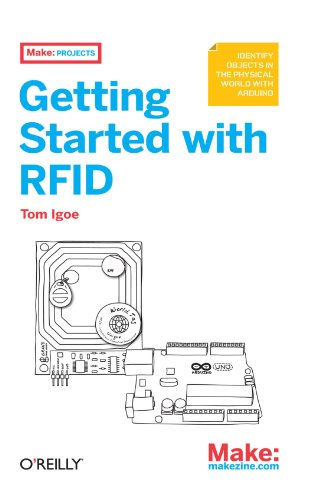

Most ebook files are in PDF format, so you can easily read them using various software such as Foxit Reader or directly on the Google Chrome browser.
Some ebook files are released by publishers in other formats such as .awz, .mobi, .epub, .fb2, etc. You may need to install specific software to read these formats on mobile/PC, such as Calibre.
Please read the tutorial at this link. https://ebooknice.com/page/post?id=faq
We offer FREE conversion to the popular formats you request; however, this may take some time. Therefore, right after payment, please email us, and we will try to provide the service as quickly as possible.
For some exceptional file formats or broken links (if any), please refrain from opening any disputes. Instead, email us first, and we will try to assist within a maximum of 6 hours.
EbookNice Team

Status:
Available0.0
0 reviewsIf you want to experiment with radio frequency identification (RFID), this book is the perfect place to start. All you need is some experience with Arduino and Processing, the ability to connect basic circuits on a breadboard with jumper wire—and you’re good to go. You’ll be guided through three hands-on projects that let you experience RFID in action.
RFID is used in various applications, such as identifying store items or accessing a toll road with an EZPass system. After you build each of the book’s projects in succession, you’ll have the knowledge to pursue RFID applications of your own.
• Use Processing to get a sense of how RFID readers behave
• Connect Arduino to an RFID reader and discover how to use RFID tags as keys
• Automate your office or home, using RFID to turn on systems when you’re present, and turn them off when you leave
• Get a complete list of materials you need, along with code samples and helpful illustrations
• Tackle each project with easy-to-follow explanations of how the code works
Tom Igoe likes playing with electronics, mechanics, and programming;
making things that let people express themselves; and unusual clocks. He
has written two books for makers, Physical Computing with Dan O'Sullivan
and Making Things Talk, and is a contributor to Make magazine. He teaches
at the Interactive Telecommunications Program at NYU. He is a cofounder
of Arduino because he believes that open fabrication can change the world.